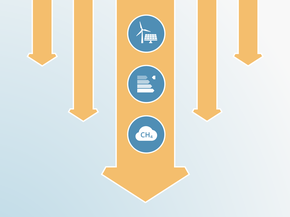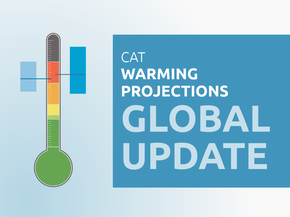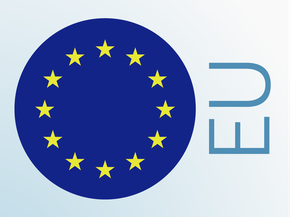Critically Insufficient4°C+
World
This rating indicates that the target is consistent with warming of greater than 4°C if all other sectors were to follow the same approach.
Highly insufficient< 4°C
World
This rating indicates that the target is consistent with warming between 3°C and 4°C if all other sectors were to follow the same approach.
Insufficient< 3°C
World
This rating indicates that the target is consistent with warming over 2°C and up to 3°C if all other sectors were to follow the same approach.
2°C Compatible< 2°C
World
This rating indicates that the target is consistent with holding warming below, but not well below, 2°C if all other sectors were to follow the same approach.
1.5°C Paris Agreement Compatible< 1.5°C
World
This rating indicates that the target is consistent with the Paris Agreement’s 1.5°C limit.
Sources
List of references
- Angola, Argentina, Bahrain, Bangladesh, Brazil, China, Ecuador, Jordan, India, Saudi Arabia, South Africa, & United Arab Emirates. (2023). The draft revised IMO strategy on reductions of GHG emissions from ships - ISWG-GHG 14/2/10. https://www.imo.org/en/about/pages/documentsresources.aspx
- Baresic, D. & K. Palmer (2022). Climate action in shipping: Progress towards Shipping’s 2030 Breakthrough. https://cms.globalmaritimeforum.org/wp-content/uploads/2022/09/Climate-action-in-shipping-progress-towards-shippings-2030-breakthrough.pdf
- Baresic, D., Rojon, I., Shaw, A., & Rehmatulla, N. (2022). Closing the Gap: An Overview of the Policy Options to Close the Competitiveness Gap and Enable an Equitable Zero-Emission Fuel Transition in Shipping. https://www.globalmaritimeforum.org/content/2021/12/Closing-the-Gap_Getting-to-Zero-Coalition-report.pdf
- Boehm, S., Jeffery, L., Levin, K., Hecke, J., Schumer, C., Fyson, C., WIlson, R., Majid, A., Jaeger, J., Nilsson, A., Naimoli, S., Thwaites, J., Cassidy, E., Lebling, K., Sims, M., Waite, R., Castellanos, S., Singh, N., Lee, A., & Geiges, A. (2022). State of Climate Action 2022. https://climateactiontracker.org/publications/state-of-climate-action-2022/
- Bureau Veritas. (2021). Understanding New IMO Decarbonisation Measures: EEXI and CII. https://www.bvsolutions-m-o.com/magazine/understanding-new-imo-decarbonization-measures-eexi-and-cii
- Climate Analytics. (2023). 2030 targets aligned to 1.5°C Evidence from the latest global pathways. https://climateanalytics.org/publications/2023/2030-targets-aligned-to-15c-evidence-from-the-latest-global-pathways/
- Comer, B., Chen, C., & Rutherford, D. (2018). Relating short-term measures to IMO’ s minimum 2050 emissions reduction target. Appendix to paper MEPC 73/INF.27 presented to IMO Marine Environment Protection Committee. https://www.theicct.org/sites/default/files/publications/IMO_Short_term_potential_20181011.pdf
- Comer, B., & Sathiamoorthy, B. (2022). How updating IMO regulations can promote lower greenhouse gas emissions from ships. https://theicct.org/publication/marine-imo-eedi-oct22/
- Council of the European Union. (2023). FuelEU Maritime initiative: Provisional agreement to decarbonise the maritime sector. https://www.consilium.europa.eu/en/press/press-releases/2023/03/23/fueleu-maritime-initiative-provisional-agreement-to-decarbonise-the-maritime-sector/?utm_source=dsms-auto&utm_medium=email&utm_campaign=FuelEU+Maritime+initiative%3a+Provisional+agreement+to+decarbonise+the+maritime+sector
- DNV. (2022). Maritime Forecast 2050. https://www.dnv.com/maritime/publications/maritime-forecast-2022/index.html
- DNV. (2023). EEXI and CII requirements taking effect from 1 January 2023. https://www.dnv.com/news/eexi-and-cii-requirements-taking-effect-from-1-january-2023--237817
- Energy Transitions Commission. (2019). Mission Possible. Sectoral focus: shipping. https://www.energy-transitions.org/publications/mission-possible-sectoral-focus-shipping/
- European Commission. (2021). Proposal for a Directive of the European Parliament and of the Council amending Directive 2003/87/EC establishing a system for greenhouse gas emission allowance trading within the Union. European Commission. https://ec.europa.eu/info/sites/default/files/revision-eu-ets_with-annex_en_0.pdf
- European Parliament. (2021). Legislative train schedule: Fit for 55 package under the European Green Deal. https://www.europarl.europa.eu/legislative-train/theme-a-european-green-deal/package-fit-for-55
- Fuss, S., Lamb, W. F., Callaghan, M. W., Hilaire, J., Creutzig, F., Amann, T., Beringer, T., De Oliveira Garcia, W., Hartmann, J., Khanna, T., Luderer, G., Nemet, G. F., Rogelj, J., Smith, P., Vicente, J. V., Wilcox, J., Del Mar Zamora Dominguez, M., & Minx, J. C. (2018). Negative emissions - Part 2: Costs, potentials and side effects. Environmental Research Letters, 13(6). https://doi.org/10.1088/1748-9326/aabf9f
- GMF. (2022). Annual Progress Report on Green Shipping Corridors. https://www.globalmaritimeforum.org/publications/annual-progress-report-on-green-shipping-corridors
- GMF. (2023). Maritime, mining, steel, and energy industry leaders join forces to develop first-ever concept for a green corridor between South Africa and Europe. Getting to Zero Coalition . https://www.globalmaritimeforum.org/press/maritime-mining-steel-and-energy-industry-leaders-join-forces-to-develop-first-ever-concept-for-a-green-corridor-between-south-africa-and-europe
- Government of the UK. (2021). UK enshrines new target in law to slash emissions by 78% by 2035 - GOV.UK. https://www.gov.uk/government/news/uk-enshrines-new-target-in-law-to-slash-emissions-by-78-by-2035
- Hausfather, Z., Chay, F., Freeman, J., & Cullenward, D. (2022). The SBTi net-zero standard should include guidance on carbon removal. https://carbonplan.org/research/sbti-carbon-removal
- Hayer, S. (2016). Decision-making processes of ICAO and IMO in respect of environmental regulations STUDY. https://op.europa.eu/en/publication-detail/-/publication/996fd06c-de15-11e6-ad7c-01aa75ed71a1
- ICCT. (2020a). New IMO study highlights sharp rise in short-lived climate pollution | International Council on Clean Transportation. https://theicct.org/news/fourth-imo-ghg-study-finalreport-pr-20200804
- ICCT. (2020b). Potential CO2 reductions under the Energy Efficiency Existing Ship Index | International Council on Clean Transportation. https://theicct.org/publications/marine-eexi-nov2020
- ICCT. (2021). Choose wisely: IMO’s carbon intensity target could be the difference between rising or falling shipping emissions this decade | International Council on Clean Transportation. https://theicct.org/blog/staff/imo-carbon-intensity-target-may2021
- IMO. (2009). Second IMO GHG Study 2009. http://www.imo.org/en/OurWork/Environment/PollutionPrevention/AirPollution/Documents/SecondIMOGHGStudy2009.pdf
- IMO. (2013). Amendments to MARPOL Annex VI: Inclusion of regulation on energy efficiency for ships. MEPC.203(62). https://www.marpol-annex-vi.com/eedi-seemp/
- IMO. (2017). Energy Efficiency Measures. https://www.imo.org/en/OurWork/Environment/PollutionPrevention/AirPollution/Pages/Technical-and-Operational-Measures.aspx
- IMO. (2018). Initial IMO Strategy on reduction of GHG emissions from ships. MEPC, 304(72). https://wwwcdn.imo.org/localresources/en/KnowledgeCentre/IndexofIMOResolutions/MEPCDocuments/MEPC.304(72).pdf
- IMO. (2020). Resolution MEPC.327(75): Encouragement of member states to develop and submit voluntary national action plans to address GHG emissions from ships. In MEPC 75/18: Vol. Resolution MEPC.327… (Annex 4). https://wwwcdn.imo.org/localresources/en/OurWork/Environment/Documents/Air%20pollution/Resolution%20MEPC.327(75).pdf
- IMO. (2022). National Action Plans. https://www.imo.org/en/OurWork/Environment/Pages/RELEVANT-NATIONAL-ACTION-PLANS-AND-STRATEGIES.aspx
- IMO. (2023a). 2023 IMO Strategy on reduction of GHG emissions from ships. MEPC.377(80). https://www.imo.org/en/MediaCentre/PressBriefings/pages/Revised-GHG-reduction-strategy-for-global-shipping-adopted-.aspx
- IMO. (2023b). Maritime Just Transition. https://www.imo.org/en/OurWork/HumanElement/Pages/Maritime-Just-Transition.aspx
- IMO - MEPC. (2020). Reduction of GHG emissions from ships. Fourth IMO GHG Study 2020. International Maritime Organization, 53(9), 1689–1699.
- IPCC. (2006). Annex 1: Worksheets, Volume 2, 2006 IPCC Guidelines. http://www.ipcc-nggip.iges.or.jp/public/2006gl/pdf/2_Volume2/V2_x_An1_Worksheets.pdf
- IPCC. (2018). IPCC Special Report on the impacts of global warming of 1.5°C. IPCC. https://www.ipcc.ch/sr15/
- IPCC. (2023). Synthesis Report of the IPCC Sixth Assessment Report (AR6) - Summary for policymakers. Intergovernmental Panel on Climate Change (IPCC). https://doi.org/10.4324/9781315071961-11
- JRC, & IEA. (2022). EDGAR’s Global Fossil CO2 Emissions from 1990 to 2021 (EDGARv.7) - CO2 total emissions. https://edgar.jrc.ec.europa.eu/dataset_ghg70
- Lloyd’s Register, & UMAS. (2019). Zero-Emission Vessels: Transition Pathways. https://www.lr.org/en/about-us/press-room/press-release/lr-and-umas-release-new-zero-emission-vessels-transition-pathways-study/
- Lowell, D., & Bradley, M. J. (2013). Assessment of the fuel cycle impact of liquefied natural gas as used in international shipping. http://www.theicct.org/sites/default/files/publications/ICCTwhitepaper_MarineLNG_130513.pdf
- Maersk. (2022). What can the industry learn and adopt from regional regulations: Deep-diving on two EU regulatory proposals for the maritime industry. https://www.zerocarbonshipping.com/publications/fueleu-ets-analysis-what-can-the-industry-learn-and-adopt-from-regional-regulations/
- Maritime Just Transition Task Force. (2022). Mapping a maritime just transition for seafarers. https://unglobalcompact.org/take-action/think-labs/just-transition/about
- Marshall Islands, & Solomon Islands. (2022). Proposal for a GHG levy as a component in a basket of measures- ISWG-GHG13/4/11. https://www.imo.org/en/about/pages/documentsresources.aspx
- Ocean Conservancy. (2020, November). IMO and Arctic States Slammed for Endorsing Continued Arctic Pollution - Ocean Conservancy. https://oceanconservancy.org/news/imo-arctic-states-slammed-endorsing-continued-arctic-pollution/
- OECD, & ITF. (2018). Decarbonising Maritime Transport. https://www.itf-oecd.org/decarbonising-maritime-transport
- Osterkamp, P., Smith, T., & Kasper, S. (2021). Five percent zero emission fuels by 2030 needed for Paris-aligned shipping decarbonization. https://www.globalmaritimeforum.org/content/2021/03/Getting-to-Zero-Coalition_Five-percent-zero-emission-fuels-by-2030.pdf
- Pavlenko, N., Comer, B., Zhou, Y., Clark, N., & Rutherford, D. (2020). The climate implications of using LNG as a marine fuel. In ICCT Working Paper 2020-02. https://theicct.org/sites/default/files/publications/Climate_implications_LNG_marinefuel_01282020.pdf
- Petroni, M., & Ancygier, A. (2023). Global maritime carbon footprint: EU policy diffusion. Discussion Paper of the 4i-TRACTION. https://climateanalytics.org/publications/2023/global-maritime-carbon-footprint-eu-policy-diffusion
- Psaraftis, H. N., Zis, T., & Lagouvardou, S. (2021). A comparative evaluation of market based measures for shipping decarbonization. Maritime Transport Research, 2, 100019. https://doi.org/10.1016/J.MARTRA.2021.100019
- Roy, B., & Comer, B. (2017). Alternatives to heavy fuel oil use in the Arctic: Economic and environmental tradeoffs. https://theicct.org/publications/alternatives-heavy-fuel-oil-use-arctic-economic-and-environmental-tradeoffs
- Saul, J. (2021). UN adopts ban on heavy fuel oil use by ships in Arctic. Reuters. https://www.reuters.com/business/energy/un-adopts-ban-heavy-fuel-oil-use-by-ships-arctic-2021-06-17/#:~:text=For%20the%20Ar[…]r%20July%201%2C%202024
- Smith, & Shaw. (2023). An overview of the discussions from IMO ISWG-GHG 14. UMAS. https://www.u-mas.co.uk/wp-content/uploads/2023/03/ISWG-GHG-14-overview-UMAS-.pdf
- Smith, T., Galbraith, C., Velandia, P., Taylor, J., Suarez de la Fuente, S., Thorne, C., O’Keefe, E., Kapur, A., Howes, J., Roberts, L., & Taylor, R. (2022). International Maritime Decarbonisation Transitions – The costs and impacts of different pathways for international shipping to achieve alignment to the 1.5°C temperature goal – Main Report.
- Smith, T. W. P., Jalkanen, J. P., Anderson, B. A., Corbett, J. J., Faber, J., Hanayama, S., O’Keeffe, E., Parker, S., Johansson, L., Aldous, L., Raucci, C., Traut, M., Ettinger, S., Nelissen, D., Lee, D. S., Ng, S., Agrawal, A., Winebrake, J. J., & Hoen, M., A. (2014). Third IMO Greenhouse Gas Study 2014. International Maritime Organization (IMO), 327. https://doi.org/10.1007/s10584-013-0912-3
- Spero, J., & Raval, A. (2019). Maritime chiefs call for ship speed limits to cut emissions. https://www.ft.com/content/30e68844-6a8f-11e9-80c7-60ee53e6681d
- The Canadian Press. (2020). Ban on heavy fuel in the Arctic full of holes. https://www.nsnews.com/ban-on-heavy-fuel-oil-in-arctic-full-of-holes-environmental-group-1.24081294
- Transport & Environment. (2019). LNG remains a dead end for decarbonising maritime transport. https://www.transportenvironment.org/newsroom/blog/lng-remains-deadend-decarbonising-maritime-transport
- Transport & Environment. (2021, April). UK closes loophole on plane and ship emissions with carbon budget | Transport & Environment. https://www.transportenvironment.org/press/uk-closes-loophole-plane-and-ship-emissions-carbon-budget
- UK Government. (2022). UK Export Finance Annual Report and Accounts 2021 to 2022. https://www.gov.uk/government/publications/uk-export-finance-annual-report-and-accounts-2021-to-2022
- UMAS. (2019). How can shipping decarbonise? https://www.u-mas.co.uk/how-can-shipping-decarbonise-a-new-infographic-highlights-what-itd-take-to-decarbonise-shipping-by-2050/
- UNCTAD. (2022). Review of Maritime Transport 2022. https://unctad.org/rmt2022
- UNWTO. (2023). Global and regional tourism performance. https://www.unwto.org/tourism-data/global-and-regional-tourism-performance
- U.S. Government. (2022). H.R.8336 – Clean Shipping Act. https://www.congress.gov/bill/117th-congress/house-bill/8336?s=1&r=48#:~:text=This%20bill%20directs%20the%20Environmental,baseline%20by%202040%20and%20beyond.
- WTO. (2023). Global Trade Outlook and Statistics. https://www.wto.org/english/res_e/booksp_e/trade_outlook23_e.pdf
Further analysis
Latest publications
Stay informed
Subscribe to our newsletter





